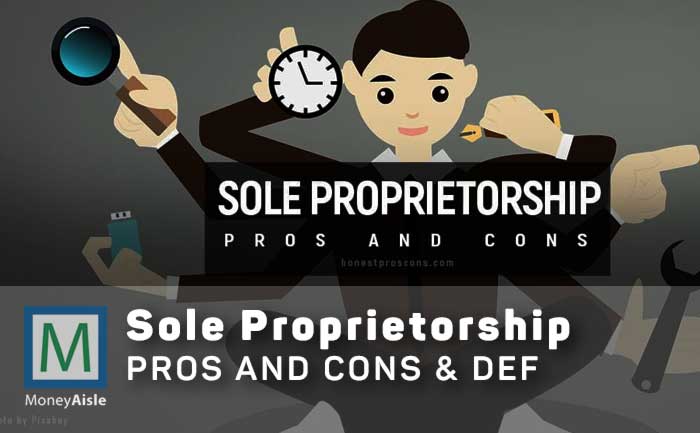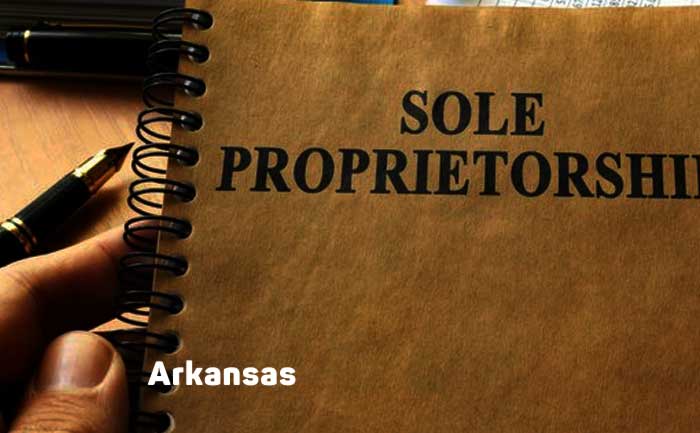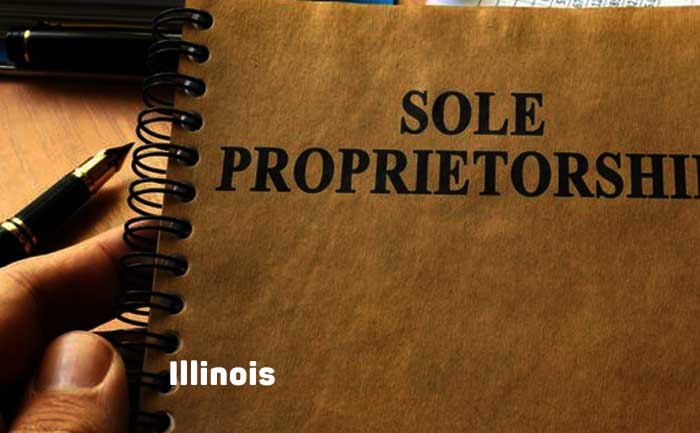A sole proprietorship is an informal and unincorporated business. It is the simplest and commonly chosen business structure due to a lack of government regulation. It is owned and run by one individual, having no distinction between the owner and the business.
Want to Become a Sole Proprietor? Read This!
Advantages of Sole Proprietorship include no filing formalities and compliance requirements. However, no limited liability protection is one of the biggest sole proprietorship cons.
A sole proprietorship is entitled to 100% profits and is responsible for all debts, losses, lawsuits, and other business liabilities. This is why this business structure is not popular among new business owners. Many entrepreneurs now prefer a Limited Liability Company (LLC) over a sole proprietorship.
What is a Sole Proprietorship?
A Sole Proprietorship is an informal and simplest business structure owned by one person or a married couple. Unless the sole proprietor registers his/her business to form an LLC or a corporation, by default, states will consider a single-owner company to be a Sole Proprietorship.
In a sole proprietorship, profit and losses are reported on the owner’s tax return. Thus, the sole proprietorship’s income is considered your income. In the same way, if a sole proprietorship is under debt, doesn’t pay its bills, or gets sued by a client, customer, or vendor, the sole proprietor’s personal assets such as car, home, other property, checking, and savings accounts are liable to settle those debts.
Sole Proprietors are not considered employees of their business. Instead, they get paid by withdrawing funds out of their companies for personal use. A sole proprietorship can be formed or dissolved without government involvement; therefore, no need to file Articles of Organization or adopt an Operating Agreement.
Whom Sole proprietorship is Best For?
A sole proprietorship is a good fit for small businesses such as freelancers, consultants, and entrepreneurs with the following characteristics:
- The business must be low-profit with low-risk
- The company has a smaller customer potential
- Businesses with smaller investments such as blogging, graphic designing, photography, or video streaming.
Forming a Sole Proprietorship
There is no formal action needed to form a sole proprietorship. If you are the sole owner of your business and have not registered your business with the secretary of state or a similar government entity, by default, you are operating as a sole proprietorship.
However, to operate your businesses in the USA, you need to be compliant with state and local government regulations. Therefore, you are required to obtain the necessary licenses and permits. Such rules vary by state, industry, and locality. You can check the secretary of state’s website to consult the “business licenses and permits” guide of the state where you operate your business. You also need to consult your county clerk and city government official to find what you’ll need to run your business in a compliant manner.
If you choose to operate under a fictitious name (name other than your own name), you will most likely need to file for Doing Business As (DBA), also known as an assumed name, trade name, etc. For more details, check Moneyaisle’s guide on How to Start a Sole Proprietorship in any State.
Sole Proprietor Taxes
Since you and your business are considered one entity, the business is not taxed separately. Sole Proprietorships are considered “pass-through” entities by the Internal Revenue Service (IRS) for income tax purposes.
Business profits and losses flow through to the sole proprietor’s personal tax returns. Moreover, all profits of a sole proprietorship are subject to self-employment taxes such as Social Security and Medicare.
Usually, a sole proprietor needs to make quarterly estimated tax payments to the IRS, state, and local tax authorities.
Advantages of a Sole Proprietorship
The following advantages of proprietorship make it a feasible choice among startups:
Easy and Inexpensive Formation
You do not need to pay a registration fee to state or no legalities to start your business.
Complete Control
Since you are the only owner having complete control over decisions and other stuff, you are not answerable to anyone.
Straightforward Tax Preparation
You do not need to file taxes separately for yourself and your business.
No Corporate Formalities
You do not have corporate formalities or paperwork requirements, such as meeting minutes, adopting an Operating Agreement, etc.
Disadvantages of a Sole Proprietorship
Despite the many attractive sole proprietorship advantages, the following sole proprietorship disadvantages compel business owners to adopt formal business structures such as LLC, LLP, S Corporation, or C corporation.
Note: You can read the side-by-side comparison between LLC Vs S Corp Vs C Corp Vs LLP here.
No Choice of Having Partners
In a sole proprietorship, there could be only one or sole owner of the business. If a business is not registered with the state and has more than one owner or partner, it will be called a general partnership, not a sole proprietorship.
No Personal Liability Protection
Limited Liability Protection which is one of the key characteristics of a limited liability company (LLC) or corporation is missing in a sole proprietorship. Since there is no legal separation between you and your business, you are held personally liable for the debts, liabilities, and other business obligations.
Hard to Raise Money with Limited Growth Potential
Sole proprietors usually face challenges while raising money through sole proprietorship. There is the limited growth potential with a sole proprietorship due to the following reasons;
- You can’t sell stock in the business
- Investors usually do not invest as a sole proprietorship does not have a legal standing
- Banks typically do not lend to a sole proprietorship due to the lack of credibility as a sole proprietorship is not a legal business entity
- If a sole proprietorship becomes more profitable, risk increases. In case of liabilities, you may lose personal assets and what you earn from the business.
No Tax Benefits
The sole proprietor pays taxes on an individual’s tax return. Their profits and also pay full FICA taxes (Medicare and Social Security taxes). Taxes become expensive with more business profits.
Less Credibility
Since a sole proprietorship is not a legal entity, investors, banks, individuals, or even customers are reluctant to connect with your business.

Alfie Wilson, Esq., is a legal content writer with expertise in business formation, criminal law, veterans disability, family law, DUI law, personal injury, animal welfare, and legal writing. He holds a J.D. from Emory University School of Law and has experience in appellate advocacy and regulatory matters. Alfie’s passion lies in breaking down complex legal topics for a non-lawyer audience. He currently writes for law firms and non-profits on various issues and resides in Arlington, Virginia.



